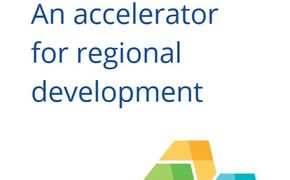On 2 and 3 December 2020, an online peer review for the City of Burgas was organized by the Policy Learning Platform, with the view of supporting the fourth largest Bulgarian Municipality to address sustainable waste management and the circular economy.
Access the recommendations in the follow-up report.
The Burgas Municipality submitted a Peer Review request moved by the twofold need of i) improving its waste prevention performance through effective monitoring of waste flows and ii) increasing its separate waste collection rates through a balanced mix of incentives and measures on enforcement, communication and awareness-raising concerning specific waste streams.
- Waste prevention, regulation and monitoring of waste & material flows: to gather insight on specific waste prevention and preparation for reuse and repair practices carried out by other European cities and, among others, on the functioning of regulatory frameworks for waste management and control at local level.
- Separate waste collection and specific waste streams: to collect information on innovative separate collection regulations, the design of sanctions to address non-compliance, ways to get people to separate more waste and measures for ensuring the separate collection of specific streams, such as biodegradable waste and used tyres, among others.
Peers from across Europe
Alongside Astrid Severin, Katharina Krell and Marco Citelli, our low-carbon economy and environment and resource efficiency exterts, five exceptional peers teamed-up to share with our on-line peer-review Host their expertise on the aforementioned circular economy policy challenges.
- Sergio de Lucas de Benito, EMULSA, Gijón (Spain)
- Berthold Schleich, ARGE (Austria)
- Susana Lopes, LIPOR (Portugal)
- Clyde Falzon Bouvett, WASTESERV, (Malta)
- Manuel Antonio Rodriguez Suarez, Enxamio & Eixoecologia, Galicia (Spain)
Peers accompanied the Host in the definition of the way forward by providing valuable insight on waste prevention and separate waste collection experiences already adopted by other cities and regions across the Union.
The Host also used the peer-review as a forum with the purpose of bringing together a wide array of local stakeholders and to have an exchange with them on the best way to embrace the shift to a circular and resource-efficient economy, which is so crucial for people’s health and environmental protection in Northern Trace.
The peers prepared a very detailed set of recommendations, including on governance issues, 'pay as you throw’ (PAYT) systems, behavioral change methods, circular approaches for biowaste, training of municipal waste advisor and so forth.
At the end of a very intense 2-days peer-review, Vesna Baltina, Deputy Mayor for Strategic Development, Environment, Digitalization and Adaptation to Climate Change at the Burgas Municipality, said: “We have learned that we don’t need to reinvent the wheel: it has already been invented! You have shared so many concrete and practical examples with us and we’ll keep in contact because we need your support”.
Veselina Dimitrova, Chief Expert Strategic Development at the Burgas Municipality added: “We would be delighted to visit the peers and see their amazing good practices for ourselves once the pandemic is over”.
Please find the policy challenges of the Host and the suggestions by the peers in the follow-up report.
By the end of the peer-review, the Host had already decided to set up an ad hoc working group entrusted with the task of developing a road map to integrate the suggestions received by the peers in the Burgas regulatory framework for waste prevention and separate waste collection.









